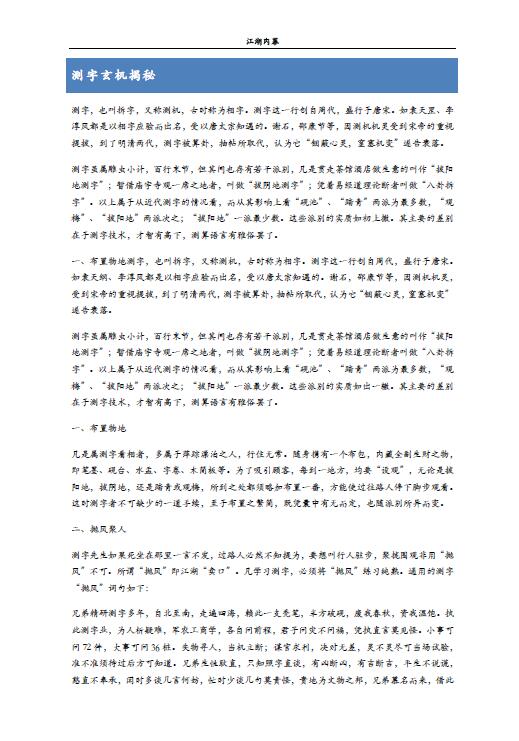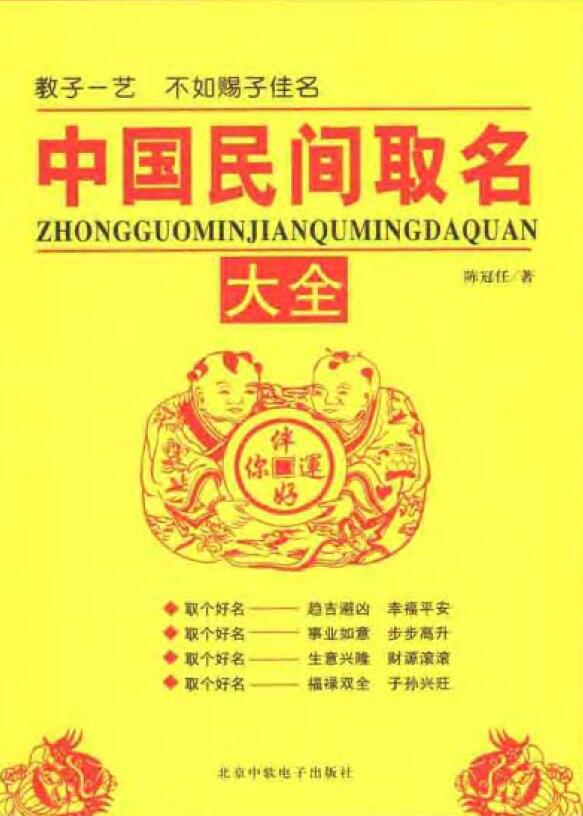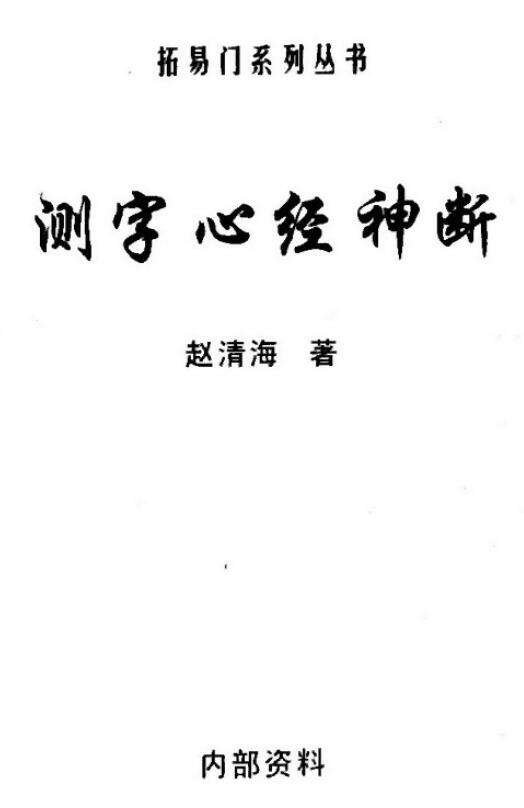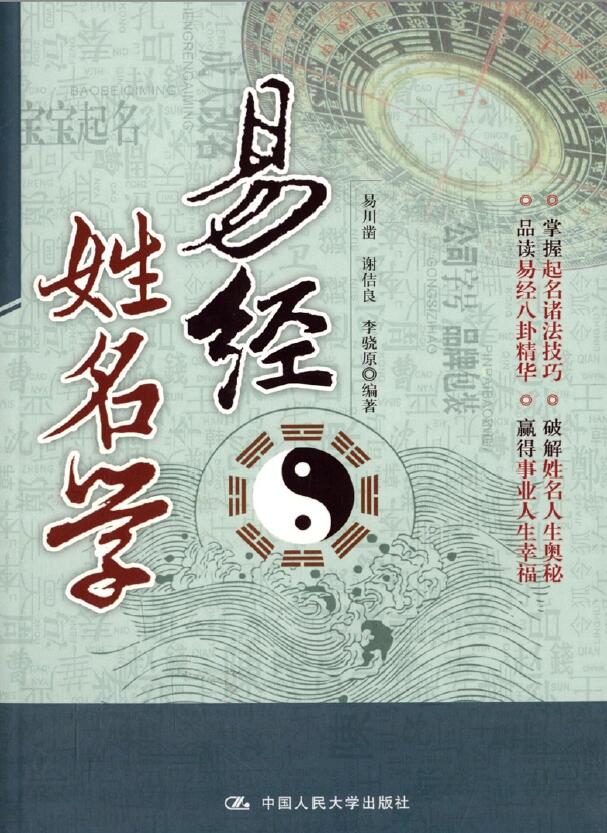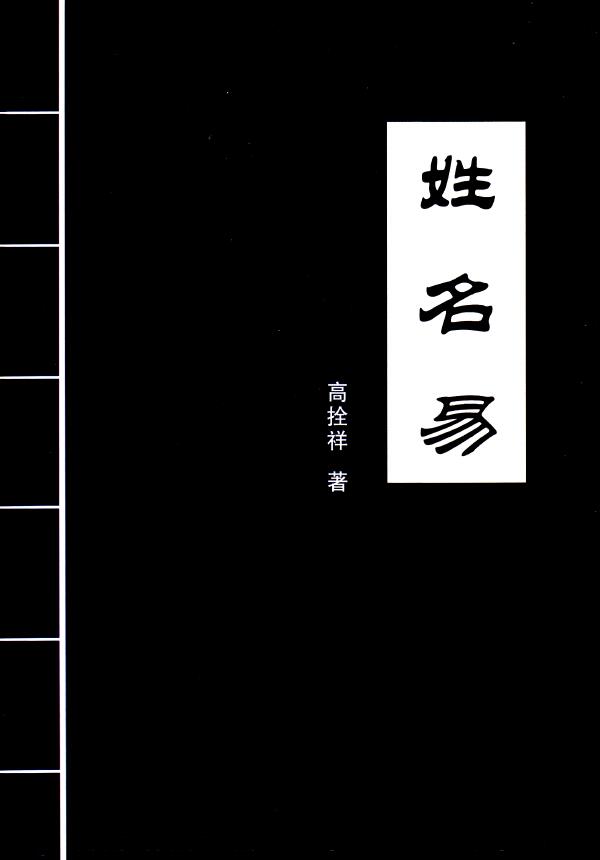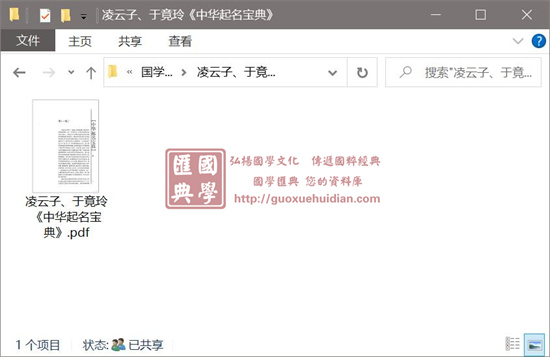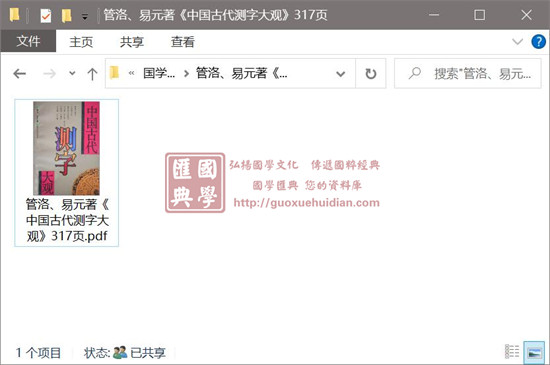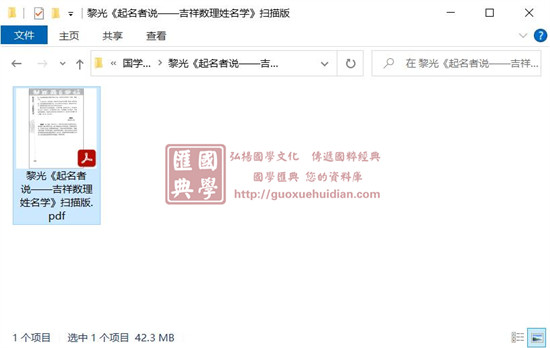Yang Kunming’s “Chinese Names” page 111
Sharing the 111-page PDF electronic version of Yang Kunming’s “Chinese Names”. Introduction Yang Kunming, the author of “Chinese Names” in the Republic of China, was born in Taiwan, the founder and teacher of Chinese Names. Yang Kunming’s “Chinese Namology” The earliest work on the study of Chinese character names is “Chinese Surnames” published by Mr. Yang Kunming in 1931.
Share the 111-page PDF electronic version of Yang Kunming’s “Chinese Names”.
Introduction
Yang Kunming, the author of “Chinese Namology” in the Republic of China, was born in Taiwan, the founder and teacher of Chinese Namology.
Yang Kunming’s “Chinese Namology” The earliest work on the study of Chinese character names is “Chinese Nameology” published by Mr. Yang Kunming in 1931. Taking name research as a science, the concept of “namology” was put forward in this book.
Yang Kunming’s knowledge of using names to calculate life can be regarded as the first real name science in the history of numerology development. This nomenclature has an independent and complete theory that is different from any ancient numerology ; Emphasize the integrity, meaning, pronunciation and five elements of the name, which is not available in the ancient numerology test name.
Although this study of names also applies the strokes of Chinese characters of names technically, it does not convert the number of strokes into Ganzhi, Yinyang, Bagua, Jiuxing, Heluo, Dunjia, etc., and then substitute them into ancient numerology To calculate, but directly use numbers to calculate; similarly, it is not only based on the radical structure of a certain word in the name, but to use the method of character measurement to infer.
In the discussion, the concepts of “heaven, earth”, “commander number” and “stage luck” in the name are put forward. Invented the method of directly judging good and bad by the number of strokes in Chinese characters of a name, published the “Words Determining Good and Bad Things by the Number of Strokes in Chinese Characters in Names” after more than 20 years of research, induction, and verification, and formulated 21 detailed rules for naming and changing names in an orderly manner.
Mr. Yang Kunming, formerly known as Yang Guoren, nicknamed Lujiang Taoist, was originally from Haicheng County, Fujian Province, and his parents lived in Taiwan.
On July 6, 1889 (the ninth day of June in the fifteenth year of Guangxu), an overseas Chinese was born in Tainan City, Taiwan, and went to Japan to study in his youth;
In 1911, on the 23rd Passed the Japanese general civil service examination at the age of 1914 and obtained the civil service qualification;
In 1914 (the third year of the Republic of China), at the age of 26, he returned from Japan and worked in the Police Department of Xiamen City, Fujian Province for 15 years , served successively as Chief of General Affairs Section, Director of the Third Administration, Chief of Health Section, etc., during which he was awarded five medals by Beijing and Fujian;
1928 (the 17th year of the Republic of China) at the age of 41 Leaving Xiamen and coming to Nanyang (now Singapore), he worked successively as a teacher in “Anshun Sanmin School” and “Shanye Rubber Tree Nei Zhiqiang Primary School, Zhumao Road, British Ipoh” for more than a year. During this period, he completed his masterpiece “Chinese Names”. “, demonstrated his name science in public many times and changed people’s names;
1931 (the 20th year of the Republic of China) on the day of his 43rd birthday on the ninth day of June, “Chinese Name Science” Officially published in Xiamen, Fujian. A first edition of 1,000 copies was printed, gifted to relatives and friends, and some sold. Regarding the publication of the book, Mr. Yang Kunming once sang, “June 9th is Daocheng, published and taught, and traveled around the world; thinking about the time, there were many hardships, waves, and suffering; the invention of fate and name science made the society happy; naming Auspicious names, wisdom comes, blessings and longevity come, Chinese names.”;
In 1932, he went to the Northeast and changed the names of the children of Xie Jieshi, who was then the pseudo-“Minister of Foreign Affairs of Manchukuo”. On November 1, 1939 (the 28th year of the Republic of China), the second edition (revised edition) of “Chinese Names” was published in Tianjin, and 2,000 copies were printed. The second edition is divided into two parts: one is “shallow meaning”, which is for public sale; the other is “essential meaning”, which is only “presented to famous mountains, temples, social libraries and those who are destined”.
Yang Kunming mentioned in the book that his invention of name science was inspired by two legends, and he used his spare time to think deeply, read a lot of books, and conducted a lot of statistics and experiments for more than 20 years It took a long time to finally complete the invention of this knowledge. There are two legends, one is: Li Shimin’s soul wandered in the underworld in the Tang Dynasty, and the king of hell added two strokes to his thirty-three-year-old Yangshou and changed it to fifty-five years; Years of life, add a stroke to the cross to become ninety-nine years old. From this, it occurred to me that one stroke and two strokes have such a life-and-death stake. However, the theory of the birth date and horoscope has people complaining about the heaven and earth, and the blue sky has the suspicion of favoring one and the other; the theory of land geomantic omen has the feeling of hating the earth, which is suspected of occupying land and forests and hindering the reclamation of local road administration; the virtues of ancestors and parents Immorality, as well as the causal theory of good and evil in one’s previous life, make people feel self-deprecating and unfilial. Although these three theories have been handed down for thousands of years, there is no way to transform and remedy them. The luck and misfortune of life, the good and the bad, are all based on the right and wrong of one’s name, and gradually change to form one’s destiny.
Yang Kunming’s “Chinese Name Science” has five principles: 1. The good or bad meaning of the name affects people’s good or bad luck; Good or bad luck; third: odd number of Chinese character strokes is yang and even number is yin, and the combination of yin and yang affects people’s good or bad luck; fourth: the “five elements” of name pronunciation, and the good or bad luck of the “five elements” affects people’s good or bad luck; fifth: The number of characters in the name represents different good or bad luck, which affects people’s good or bad luck;
In addition to the above five principles, the book can also accurately calculate the luck of the day, the moon, the good and bad times of the year, and the six relatives, Wealth, official fortune, etc., and even many small details of personal life can be calculated. This name study has the following characteristics: First point: the number of strokes in Chinese characters is calculated as “the number of written strokes”, not “the number of strokes in the Kangxi dictionary”. Numbers are also calculated according to their own strokes; The second point: there is no “five-line arrangement” for the number of strokes used in names (such as one and two are wood, etc.); The sum of the number of strokes of “is the “sling number”, which is the fate of the master’s life; the sum of the strokes of the name is the luck before the age of thirty-six; the sum of the strokes of the full name is the luck after the age of thirty-six; The fourth point: there is no theory of “three talents” and “five grids”, and there is no theory of “adding one to the number of strokes of a single character’s surname is the number of Tiange”, and “adding one to the number of strokes of the last word of the name is the number of outer grid”.
Some screenshots
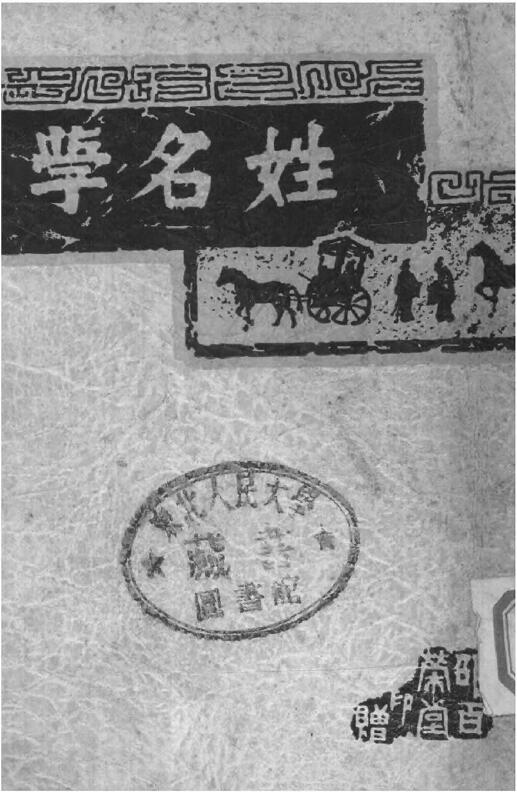
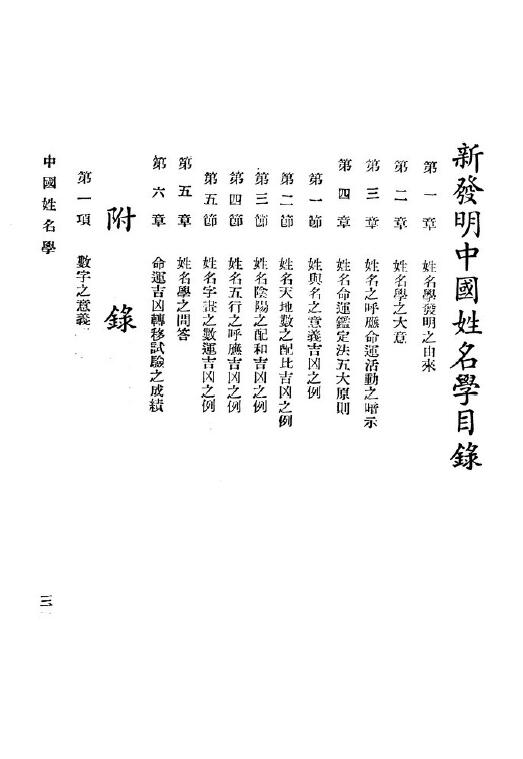
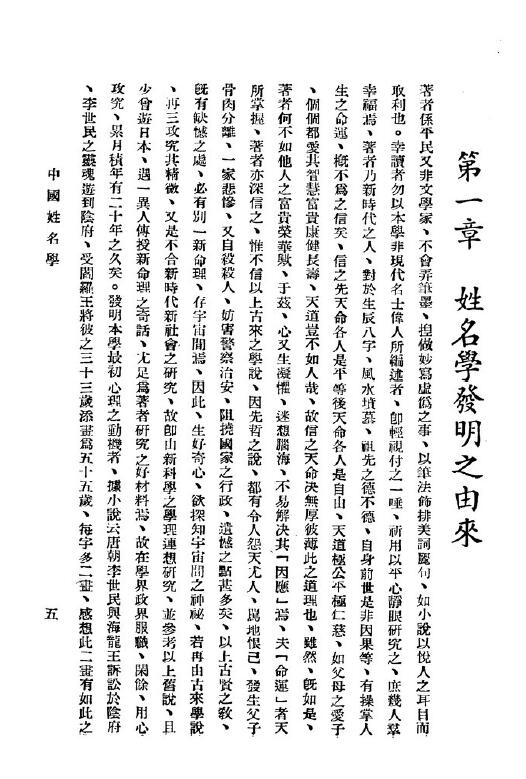
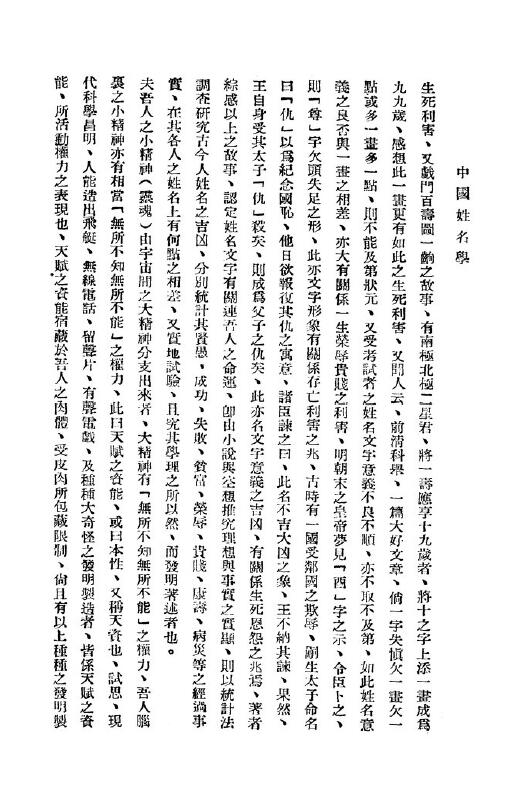
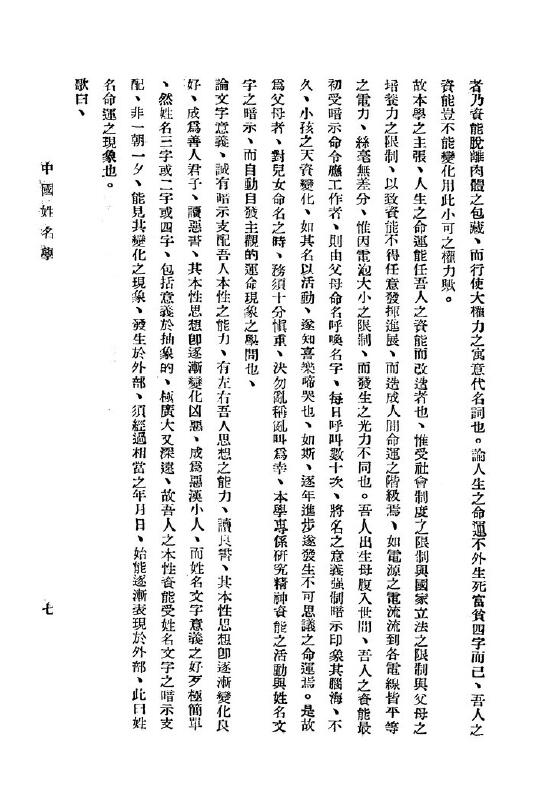
BOOK INFO:
- Publication Date: 未知
- Language: 中文
- Identifier: 内部视频
- Total Pages: 1
- File Type: PDF
Download Link:
Payment Method:
1、Open Tittle
2、Click to Pay New
3、Click on the material you want to buy
4、Click on "Payment Methods"
5、Click on the material you want to buy
6、Choose from one of your existing payment methods or add a new one
7、Complete purchase
NOTE: If you add a payment method when making a purchase, it will be saved in your account.
